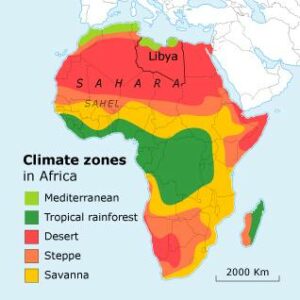Dwight Widaman: Can you believe the headlines?
You no doubt have seen the breathless headlines reporting about Cape Town and western South Africa running out of water after a lengthy drought. I saw a detailed report earlier this week on CBS This Morning. I took it with a grain of salt. Even though I’m not a scientist, geography major or climatologist, my first thought was “isn’t much of South Africa primarily a semi-arid region of the world?” I think I may have learned that in 7th Grade geography.

Of course, right on cue CBS, NBC, CNN, the BBC, New York Times and other media bring on the “experts” and blame global warming. Most people would believe it if it were not for a pesky little thing called Google (or 7th Grade Geography).
I’m always skeptical of spurious claims about anything. I’m a voracious consumer of news because that’s my job and I often find conflicting reports as I compare what the media is telling me vs. the facts on the ground or this thing called history.
For example, it’s trendy these days that every weather phenomenon that causes distress is caused by “global warming”. Hurricanes, snowstorms, floods and droughts are all seemingly blamed on it.
Read other examples of false news reports from 2017
 But what about that South African drought? Sounds serious, right? Well it is for those experiencing it. But it is not new and has been recorded as happening regularly since the 1800s. A 2-second Internet search of “South Africa historical drought” brought up thousands of results. Apparently, if these media outlets had done their homework they would have quickly learned that drought has always been a problem in South Africa–it is just the natural state of the climate in that area of the world. The most recent devastating drought lasted half a decade in the early 60s curiously before “global warming”. Right on time, (because true science shows us that climatic changes are cyclical) 60 years later there’s another drought.
But what about that South African drought? Sounds serious, right? Well it is for those experiencing it. But it is not new and has been recorded as happening regularly since the 1800s. A 2-second Internet search of “South Africa historical drought” brought up thousands of results. Apparently, if these media outlets had done their homework they would have quickly learned that drought has always been a problem in South Africa–it is just the natural state of the climate in that area of the world. The most recent devastating drought lasted half a decade in the early 60s curiously before “global warming”. Right on time, (because true science shows us that climatic changes are cyclical) 60 years later there’s another drought.
My Google search found, “Drought, water and politics in southern Africa” on the website South African History Online. It reported:
“In a statement reported in the [Johannesburg] Star of July 23rd, 1966, Dr. N. Stutterheim, Vice-President of the Council for Scientific and Industrial Research, called the lack of adequate water supplies a ‘great weak link’ in South Africa’s development. The issue has been sharply raised in the last five years by the worst drought for a century. Except for Southern Natal and parts of the Eastern Cape, rainfall has been well below average since 1961. The losses suffered in production of crops and stock run into hundreds of millions of rand.
The Minister of Agricultural, Technical Services and Water Affairs, Mr. J.J. Fuoche has made an impassioned appeal to South Africans to conserve more water.”
As I sit here writing this with CBS This Morning playing in the background, they just attributed another event to climate change. This time it is rising mercury levels in the Antarctic.
Ok, time to Google.






